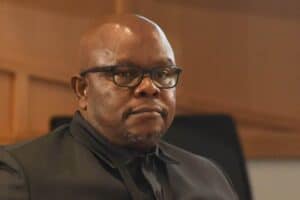According to information submitted by G4S to the Department of Correctional Services, disciplinary measures have been taken against employees.

The Department of Correctional Services has recovered R2.5 million from private contractor Bloemfontein Correctional Contracts following corruption, security breaches, and delayed incident reporting at the Mangaung Correctional Centre.
Minister of Correctional Services Dr Pieter Groenewald revealed that 51 G4S employees have faced disciplinary action since April 2023.
Major financial recovery and staff dismissals
Groenewald disclosed that “the total amount recovered from the Contractor Bloemfontein Correctional Contracts (BCC) since inception of the Contract amounts to R2 547 216.43.”
The recovery stems from financial penalties imposed due to corruption, security breaches, and failure to report incidents in a timely manner at the facility.
The minister was responding to questions from EFF MP Betty Diale about disciplinary actions taken against G4S officials at the troubled correctional centre.
He said G4S operates as a sub-contractor under Bloemfontein Correctional Contracts, overseeing daily operations at the facility.
ALSO READ: EMPD and Saps officers to appear in court for corruption and theft
Disciplinary actions against G4S staff
According to information submitted by G4S to the Department of Correctional Services, significant disciplinary measures have been taken against employees.
Between April 2023 and the present, 19 staff members were suspended, 12 were dismissed, and 20 resigned before investigations could be concluded.
“The Contractor (G4S) has internal disciplinary procedures/processes which they exercise over their employees who have been found to be implicated in corruption, security violations and the dereliction of duties,” Groenewald explained.
ALSO READ: Seven Mangaung prison officials suspended after murder of inmate [VIDEO]
Department’s limited authority over private contractor
The minister clarified that the Department of Correctional Services has limited control over regulating the disciplinary proceedings against G4S officials.
“The matter is handled by the Contractor through their internal disciplinary processes,” Groenewald stated.
However, he stated that the department retains significant oversight powers.
The DCS has the authority to suspend or withdraw certificates of operation for G4S employees under Section 109 of the Correctional Services Act 111 of 1998.
The contract also allows the department to issue observation notices for non-compliance.
The agreement stipulates that “the Contractor will, if it is in the reasonable opinion of the DCS, refuse admission to or remove a Staff member if that member is guilty of misconduct or incapable of performing his duties efficiently.”
ALSO READ: It costs taxpayers between R800 and R1 000 a month to feed an inmate
Oversight mechanisms and supervision
The Supervisory Committee plays a crucial role in managing the public-private partnership.
Groenewald revealed that “the Supervisory Committee convenes every two to three months to adjudicate over observation notices.”
The committee’s decisions carry significant weight in the contractual relationship.
“Once the Supervisory Committee has given notice of its ruling to the parties and no notice of dissatisfaction has been given by either party 14 Days after the day on which the parties received the Committee’s ruling, then the Committee’s ruling shall become final and binding upon the Parties,” the minister explained.
Independent oversight structure
The Judicial Inspectorate for Correctional Services (JICS) serves as the primary independent oversight body for the facility.
Groenewald described JICS as “the primary body responsible for this oversight to ensure the fair and humane treatment of inmates across all correctional centres, including the two private facilities.”
As an independent entity, JICS inspects correctional centres, monitors inmate treatment, and reports on conditions and potential corruption within the system to Parliament.
This oversight extends to both public facilities and the two private correctional centres operating in South Africa.
READ NEXT: Here’s the amount of drugs that were confiscated in SA’s prisons last year






